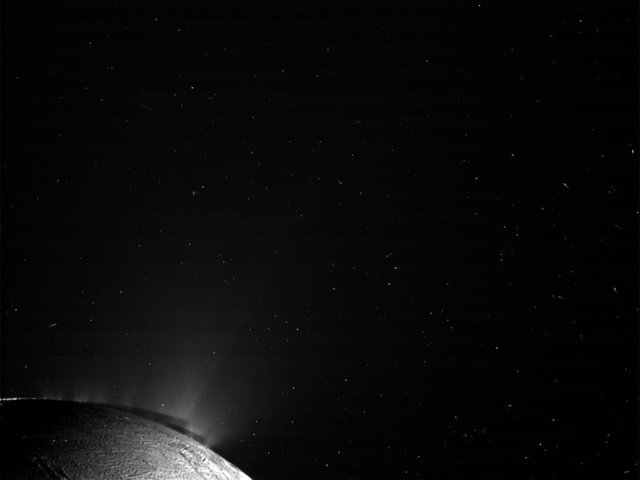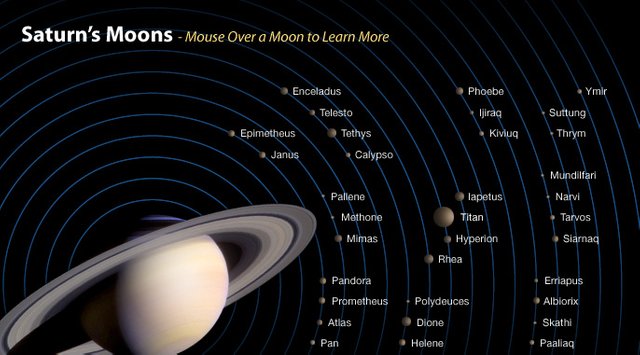The Watery Moon Enceladus
The Cassini spacecraft discovered water on the moon Enceladus back in 2005 and scientists have been researching it since then
Enceladus is Saturn's 6th largest moon and orbits at a distance of 148,000 miles (238,000 km). Enceladus is interesting for many reasons, the main one being that many signs point to there being liquid below the surface.
Liquid Water on Icy Moons
In the void of space planets and moons tend to radiate energy. Water needs a relatively high energy level to stay liquid, which means the planets need a constant supply of energy. This is often thought of as coming from a star, but in many cases that can't happen. Ice is too reflective and the moons are often too far from a star anyways. This means energy must come from another place, which just happens to be gravity for the moon Enceladus. Measurements from Cassini indicated that the power gained from the tidal forces is as much as 15.8 gigawatts. This is over 2.6 times the geothermal energy released at the entire Yellowstone park. [1]

The water jets on Enceladus
source
Clues of an Ocean
The first clues to water on Enceladus were when Cassini discovered jets of water shooting off from the surface of Enceladus. After finding the jets scientists decided to have Cassini spend more time studying Enceladus. This included a gravitational mapping of the watery moon. They found out that the planet is denser in parts than ice should be. Since liquid water is about 8% more dense than ice, they can get a rough estimate of the amount and position. The water seems to be mostly located at the southern pole and occupies an area between 30-40 kilometers beneath the ice. [2]
Analysis of the Ocean
The most interesting part about the ocean is the amount of organic matter found, which was over twenty times the expected value. Different volatile gasses were also found including, carbon dioxide, carbon monoxide, and water vapor. These are actually quite rare in the universe and require special conditions to appear in great quantity. [3]
The chemical makeup of the ocean makes it a prime spot to search for life. This chemical makeup is most likely supported by hydro-thermal vents at the bottom of the ocean. These are like the hydro-thermal vents of Earth, which are a breeding ground for life and organic marital. As our space program advances taking a look underneath the surface of this moon and learning more is a major opportunity.[4]
Enceladus is a candidate for our search for life, and seems like it is one of the most likely in the solar system.

I just had to look up what Enceladus means, it sounds like ensalada which is spanish for salad, turns out he was one of the giants in Greek Mythology.
yeah planets and moons have a weird naming scheme going back thousands of years.